
Foods offer some of the best options available in terms of maximizing sports performance in a natural way. With food, you know what you’re putting into your body every time. Many foods can help with everything from providing energy for pre-workouts and helping with workout hydration to post-workout recovery to ensure you’re getting the most from every training session. One of the best foods to help maximize sports performance is beets. The benefits of beets actually go well beyond increasing workout energy.
Dwight Schrute from The Office was truly onto something. Beets are a superhuman food, and the proven benefits they have on boosting athletic performance are quite astonishing. With their numerous health benefits, adding beets to your pre-workout meal will have you reaping the rewards.
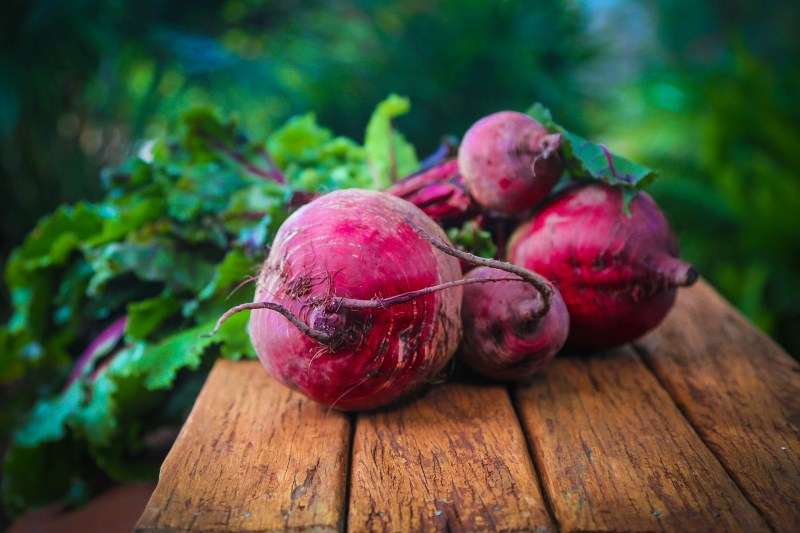
Nutritional information highlights for beets
- Calories: 58
- Sodium: 106 mg
- Potassium: 442 mg
- Carbs: 13 g
- Sugars: 9.2 g
- Vitamin C: 7% of your daily value (DV)
- Folate: 37% DV
- Manganese: 19% DV
- Vitamin B6: 7% DV
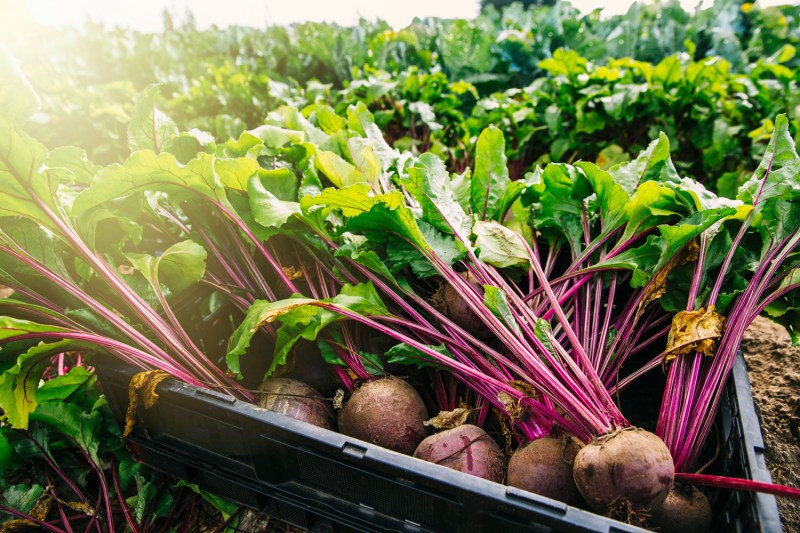
Benefits of beets: The ultimate all-natural pre-workout
One of the main reasons beets and beet juice are heralded as a sport-enhancing powerhouse is the boost they can give you as a natural pre-workout supplement. The nitrates found in beets are converted to nitric oxide in your body. As a result, nitric oxide plays a huge role in increased blood flow, gas exchange, mitochondria biogenesis and efficiency, and muscle contraction. Improving these markers has a direct correlation to athletic improvement by boosting cardiovascular endurance.
This ultimately helps improve an individual’s VO2 max — the body’s maximum ability to use oxygen during exercise. VO2 max indicates how an athlete’s body can efficiently use oxygen, thus those that consume beets and beet juice can exercise longer and more efficiently.

May lower blood pressure
As mentioned above, the effects of the nitrates found in beets can have a profound effect on sports performance. Those high levels of nitrates can have a direct effect on lowering blood pressure. By improving blood flow, it acts as a vasodilator (opens up blood vessels) to help blood flow more freely. This helps feed more oxygen to muscles during intense activity. As a result, it can help stave off different diseases such as high blood pressure, heart disease, hypertension, and others.
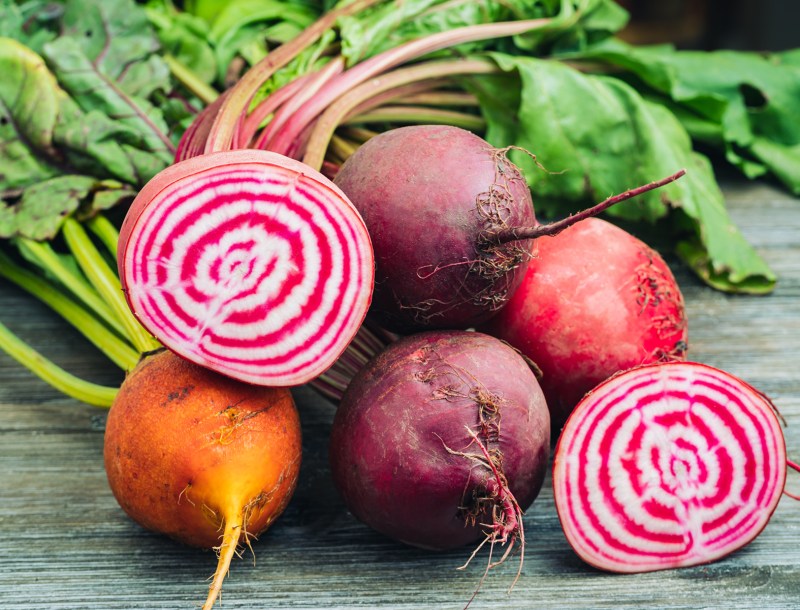
Antioxidant and anti-inflammatory
One of the main reasons fruits and veggies with dark pigmentations are always regarded as desired foods in a well-balanced diet is their ability to have antioxidant properties — and beets offer just that. Betalain is a water-soluble plant pigment that gives beets their naturally deep-red color. One of the properties that betalain has is its ability to be a potent antioxidant.
Working out places larger amounts of oxidative stress on your body, which increases bodily inflammation. Consuming things like antioxidants can help fight inflammation. Not only does it help fight inflammation, but chronic levels of inflammation have been shown to lead to heart disease, high blood pressure, obesity, hypertension, and more.
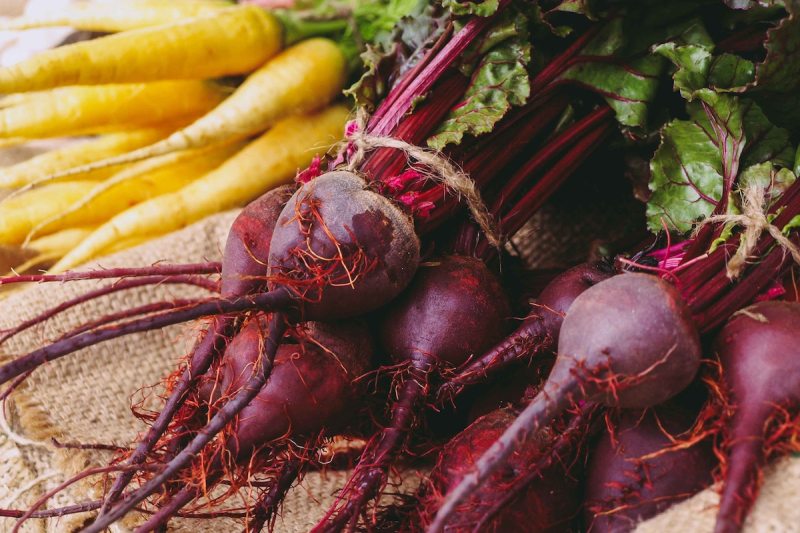
Brain boosting benefits
Age-related decline in mental and cognitive functions, along with the increased risk of neurodegenerative disorders like dementia, can be concerning. However, incorporating beets into your diet may have beneficial effects on brain function. The nitrates that are present in beets promote the dilation of blood vessels, leading to increased blood flow to the brain.
Specifically, beets have been shown to enhance blood flow to the frontal lobe, which is associated with higher-level cognitive processes like decision-making and working memory. In a study involving individuals with type 2 diabetes, consumption of 8.5 ounces (250 mL) of beetroot juice daily for 2 weeks resulted in a 4% faster reaction time during a cognitive function test compared to a control group.
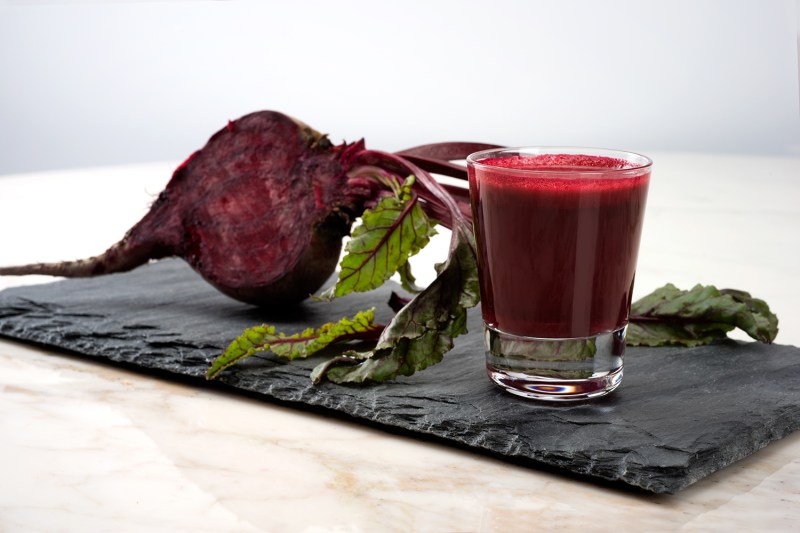
How to make a beet juice drink
Beet Juice Recipe
As with most foods, cooking and preparing beets can negate some of the health benefits that it provides. We recommend taking whole beets and using a good high-quality blender to make a great pre-workout beet juice drink.
- Prep Time: 5 minutes
- Total Time: 10 minutes
- Yield: 1 serving (16 ounces)
Ingredients:
- 1 whole beet, chopped
- ½ lemon, squeezed juice
- 1 1/2 cups water
Method:
- Put all ingredients into a blender and blend until smooth.
- Using a fine metal strainer or a metal coffee filter, strain the juice into a large glass.
- Consume 20 to 30 minutes before a workout
- Enjoy!
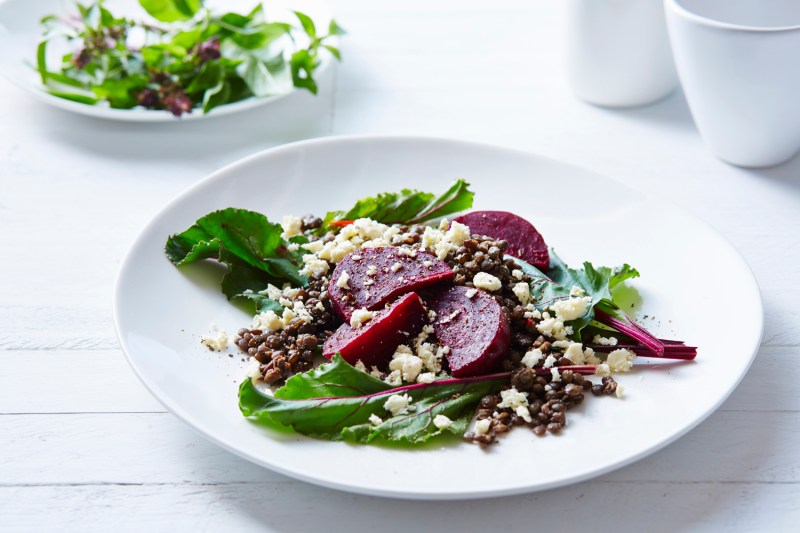
A low-calorie superfood for improving athletic performance
As an alternative to supplements, beets are a great all-natural source for getting great health benefits that can truly take your athletic performance to the next level. They boost VO2 output, increase nitric oxide levels, help fight inflammation during post-workout recovery, and are relatively low in calories.



